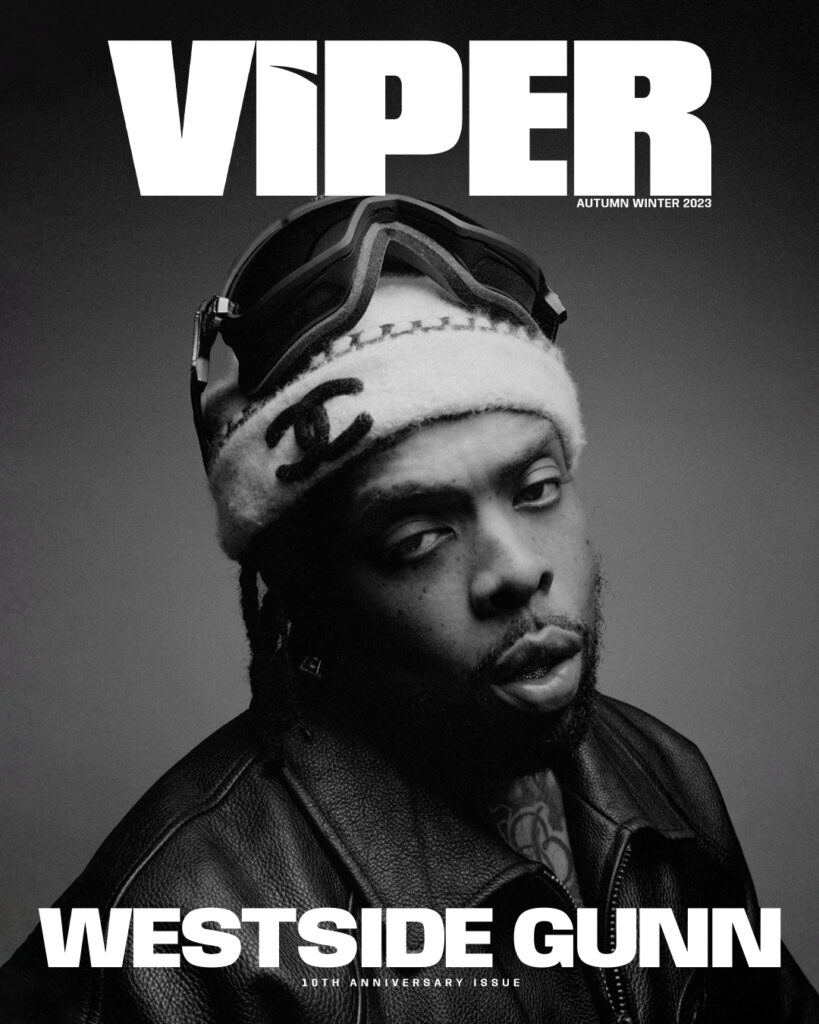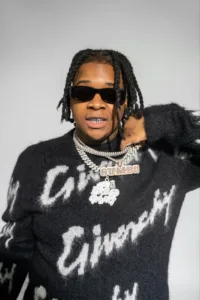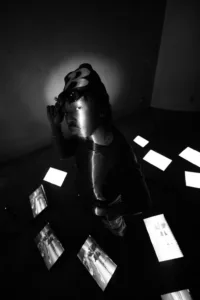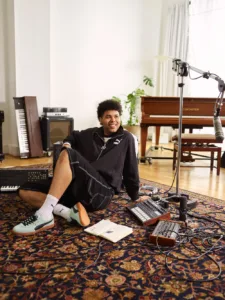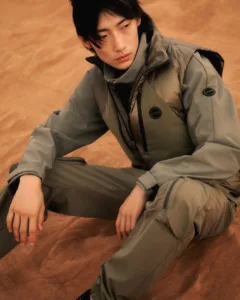With many years of her career in the spotlight – prior to her collaborations with Mr Eazi and Sarkodie – one constant in Efya’s evolution has been the fluidity of her work rate, and the drive she’s had to push herself to new heights. She recently introduced a new vibe, with her recent single, ‘The One’, alongside her friend, Tiwa Savage. Viper sits down with the four-time winner of Ghana’s Best Female Vocal Performance Artist...
Let’s begin by talking about the new single you’ve released with Tiwa Savage.
Tiwa and I have been friends for a while, we met each other a couple of years ago in Nigeria. As the years have gone by, we’ve worked on different stages together. One Africa, [then] the Brooklyn Centre, so many stages but we never really made music together. It was the December before this one, we were working at dawn and she woke up and heard us making music; me and BlaqJerzee. We had started making the sounds, most of the time when I make music, I have the melodies in my head. I play it out and then he plays it on the keyboard, then we start from the keys and maybe we add the base. We hadn’t really added many other things to it but when Tiwa heard it she liked the vibe.
I sang the raw version of the first adlib and she was like, “Yeah this is nice!” I said, “Yeah it sounds different,” because it didn’t sound like anything both of us had done before, so I was like, “You should put your voice on it, let’s do something different” and she said, “Yeah that should be exciting” and the rest is history. The song went back and forth with the music part. We changed a lot of things inside because when we did it at that time it was from scratch. The horns hadn’t come in. Some of the synths were not in there yet. As time when on, it all filled up and then she did her verse, she sent it. We were back and forth, it probably took a year.
Was that due to location or because you wanted to get things right?
Just because we wanted to get things right. When we had the song for a while I had not done my lyrics yet because when I did the song she had done her part with her lyrics but I still had mine in adlib and I wanted it to be as if she was translating what I was saying. When I sang the song to everybody they said, “This is sick because it sounds like you sang something and she brought it into life and into the works.” It was like that ’til we decided I should put some words in. Because depending on how it’s taken, people would not be ready for the fact that we literally wanted to mind fuck everybody. It went back and forth for a while ’til it became what it is now and we all love it. I believe we cracked the code somewhere in that process.
How was the whole process of you writing and how do you normally write your music?
I have worked with a writer in the U.K. and one of my writers here. We both shuffled between the lyrics of what we wanted the song to represent. Normally I like to take my time, especially when it comes to writing because I believe that words are very powerful and people take them differently. If you’re gonna put words out there they need to sit well with everybody almost all in their own different way. That was one of the things I was very particular about. It was exciting for me because I was just excited that we were experimenting as much as we could and we were having fun with it.
You mentioned that you work with a writer in the U.K, have you worked with them over different projects?
Yes, he is one of the writers that I am working with for my album.
When are you looking to release the album?
At the end of the year.
How have you found working on your album, with the challenges of what’s going on around us?
I’ve been working on it since last year. When I’m in GO mode I can make 10 songs in a week or more, so I could be in GO mode for a week and drop 30 songs on your head and you have to pick two of them. It comes and goes but I’m grateful for my team because they give me direction and guidance; I’m very versatile. In the end it has to be structured well to become the body of work that it is, so I’m grateful for my team being as versatile as me, to see the vision that I have and also to be able to break it down so that we don’t pick out the sauce. Sometimes the song that might not feel mainstream will become the most popular song on the album because it’s the one that people connect with the most. We have different people with different views so we can see from everybody’s perspective. It’s basically like doing a test run. I like to have different views with the music I do because of the diversity that comes with the kind of artist I am.
Do you work with a big team or a smaller team?
It’s not too big but it’s not too small either. There are a lot of people involved in different sides of the world but my main team is located in London with my manager. I have some of the producers and writers here, in Nigeria and some in the States. We have a team in L.A too so it depends on the vibe and what we want.
Where do you spend most of your time?
Mostly here [Ghana] and if I’m not here, I’m in the States.
If you had to choose a permanent location, would it stay as Ghana?
The fufu here is not like the fufu elsewhere. I love this place so much. I really love it here because this is where everything started for me. Even if I become famous all over the world I would still come back to Ghana because this is my heart and also the fufu.
Let’s go back to how things started. So I know you were on a show that would be the African equivalent of the X-Factor. How was that experience?
Yes it was the first of its type here. Really popular. So I did the whole TV, competition thing. It was cut down to three and they put us together to make a team. We did the competition and the rest is history. We went from one competition to another, from one hit to another, then we did ‘Best in Me’, then ‘Little Things’ and boom, God has been great.
How do you think that experience prepared you for now?
Being in the girl group was very enlightening for me. I learnt so much about teamwork. After I left the girl group, I had to learn how to be a solo artist. I had to put my own team together, get new management, all of those things. It wasn’t easy but I was really determined and I knew who I was and what I wanted to be. When I won my first Best Female Vocalist in Ghana I was really shocked even though I knew the song was really popular I didn’t think I was going to win the award. I won it that year, I won it the year after and I won it four years in a row. After that I knew, “ok, you’re doing something.” In between all that, it was really challenging because I had to learn the lesson of – it’s not about getting to the top but it’s staying there. I had to learn how to stay relevant, focused and not to let it get to my head. I didn’t stop developing my act. If you hear my song on the radio and you come to my performances, they are two different experiences and that’s what I wanted to give the people because I felt that they didn’t really get that from the male artists so the performance part of my whole artistry was very important to me and still to date. If I get on stage, you know that I’ve been working to it and I came there to actually do something that would touch people. I’m very grateful.
What is the drive behind that artistry?
We put a lot of work into the stage craft. We mix it up. There are dancers. I love the whole gathering part of the show and I feel like a lot of African artists do not put [effort] into their stage craft. That’s one of the reasons why I love Tiwa, because you see her on stage and she has the dancers, there is formation. You need to bring something else other than the music. It makes you unique. When I hold the mic and there’s a spotlight on me you can see me come out in a big ball, literally; a transparent one where I am singing out of the ball and you can see me. It’s amazing. You can see she’s doing extra for us and I feel like the fans appreciate a lot of work being put into stage craft. In Africa we have so many stories to tell with our music and I feel that we should interpret that on stage. I’m gonna keep doing me but I do encourage everyone else to find that part of their artistry and infuse it in their stage craft.
What are you looking forward to in the future?
As much as I believe in the now I also believe in planning for the future. As we put the album out, I would love to tour as many cities as I can to spread my music wide, to increase my numbers so that I can do a lot more collaborations with many more artists. What I’m trying to do now is break the boundaries and enter other types of music, with all types of musicians and see where I will go into as an artist, especially now I am trying to collaborate and infiltrate into other countries. I’m at a stage where I’m ready to go to my next level. I’ve been at a high level but I always believe there is a higher level to go to. As long as I have my voice I will always keep singing.
Interview by Rachel Abebrese.
